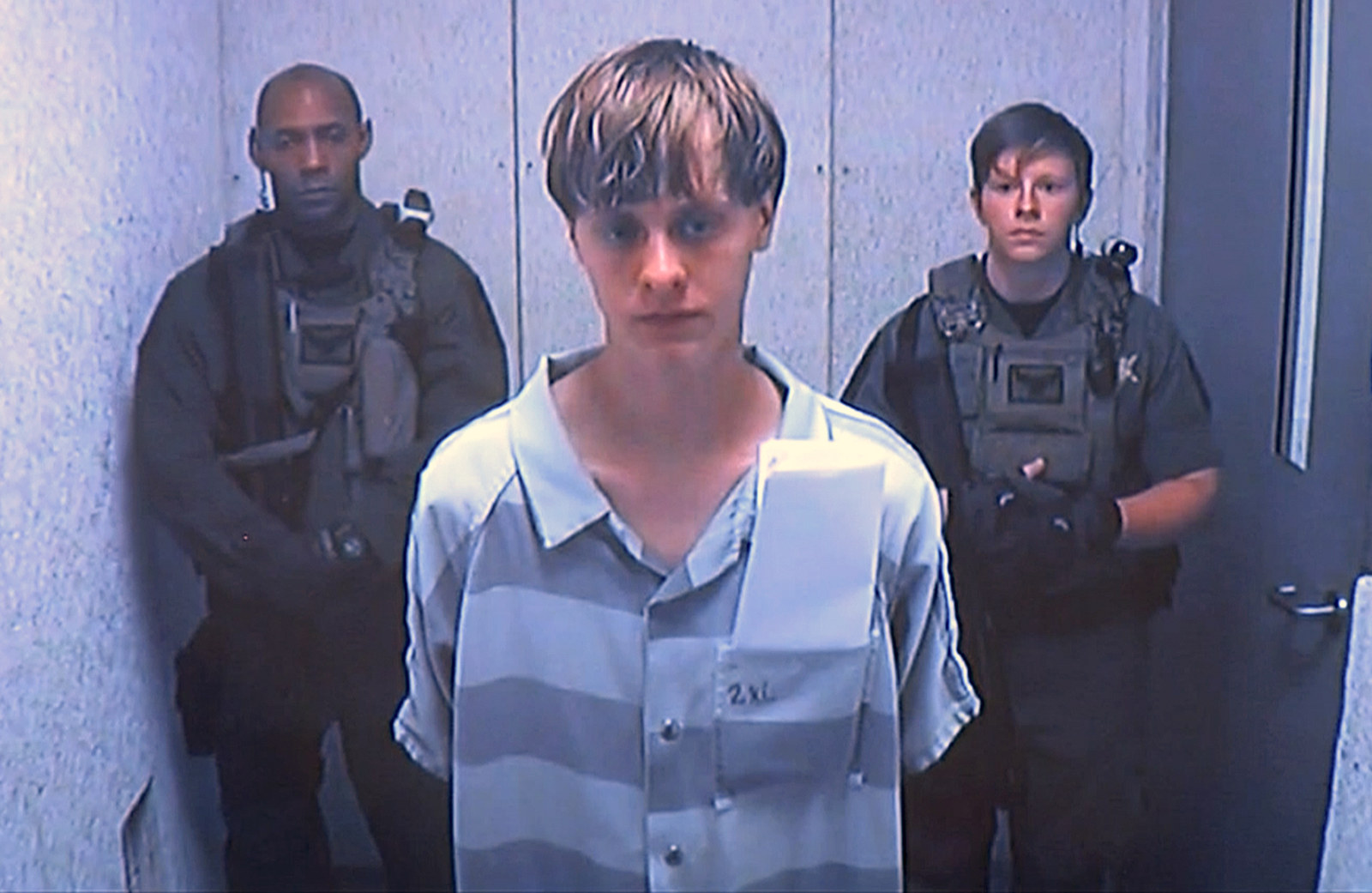
In response to the fatal shooting of 10 people — nine others were injured — on the Umpqua Community College campus in Roseburg, Oregon, on Oct. 1, President Obama gave a strong speech concerning guns in America.
"We are not the only country on Earth that has people with mental illnesses or want to do harm to other people," Obama said from the White House. "We are the only advanced country on Earth that sees these kinds of mass shootings every few months."
On that last point, Obama is not exaggerating. A mass shooting — the FBI gives that designation when at least four people are shot — occurred almost every day of this year. (By the FBI's metric, a professor at Northeastern University concluded there has been no significant increase in mass shootings since the 1980s.) Globally, though, the U.S.'s gun-related homicide rate is lower than countries in Africa and South America and is around double that of any country in the world with comparable economic and governmental structure, according to GunPolicy.org, a research clearinghouse at the University of Sydney's School of Public Health that sources information from organizations around the world.
In the wake of the Roseburg shooting, our BuzzFeed News colleagues in the United Kingdom — where gun violence is a rarity — had some questions for their U.S. counterparts. With the help of experts, we attempted to answer their questions.
Every time there is a mass shooting, President Obama makes a passionate speech about the need for gun control. And yet it never happens. Why? Does he not have the power to drive through change?
President Obama — and all other U.S. presidents — has limited power to enact laws without Congress. Only Congress can pass new legislation, and there is not enough support for gun control laws in Congress for a few reasons we'll go into later. He and his administration also attempt to rally members of Congress toward his policies.
Would you say the majority of Americans want stricter gun control laws? If so, how come it hasn't happened yet?
A survey conducted by the Pew Research Center in mid-July suggests that the majority of Americans support the passage of stricter gun laws. Nearly 80% of both Republicans and Democrats polled said they favor laws to prevent people with mental illness from purchasing guns; 70% supported the creation of a federal database to track all gun sales; and 57% said they support a ban on assault-style weapons.
In spite of what Americans might say to pollsters, these numbers do not generally lead to legislative change. Part of the reason is that many people don't express these beliefs when or if they vote for members of the House of Representatives. Voter turnout in these elections is generally low, and in many districts that are rural and lean conservative, a candidate being anti–gun-control could prevent her from being elected. Conversely, in districts that are urban and more liberal-leaning, gun control is not necessarily the most concerning issue for those electing a representative.
For all these reasons, despite what Americans in general might think, the majority of the district representatives elected to the House are anti–gun-control and are likely to vote down any gun control legislation proposed.

How did the gun lobby become so powerful?
Whether or not you think it's a good or bad thing — or somewhere in between — the National Rifle Association and other gun lobbyists have great political influence over members of Congress.
Adam Winkler, a professor of constitutional law at UCLA and author of Gunfight: The Battle Over the Right to Bear Arms in America, gave BuzzFeed News a short breakdown of how he believes this came to be:
The NRA became a political powerhouse in the 1970s and '80s, a time of skyrocketing crime rates in the U.S. The NRA's rhetoric of self-defense found a willing audience among people who feared becoming a victim.
The NRA has remained politically powerful because of its ability to turn out a core of hardline gun voters on Election Day. Gun owners are more politically engaged than gun control supporters, giving more money, making more calls, and basing their votes more frequently on this issue alone.
The NRA also got a 43% favorable rating in a recent NBC News/Wall Street Journal poll from August 2015. Among Republicans, the NRA was viewed favorably by 63% of respondents.
Gun rights advocates: What is their explanation for why the U.S. has a much higher rate of gun deaths than comparable countries? Or do they just not talk about it?
"I'm not sure that's a fair question," Dave Workman, senior editor for the Second Amendment Foundation's publication TheGunMag, told BuzzFeed News. "If you eliminate five or six of the larger cities, America doesn't really have much different of a climate [gun violence] than other countries."
Workman believes the U.S. has a high-crime "culture problem," but he thinks it could maybe be solved the same way it was in the '90s by "putting felons behind bars where they can't harm anybody."
Workman also pointed to a potential correlation between an increase in gun sales and a drop in violent crime, "because bad guys don't wanna be shot by the good guys, basically." In 2011, the Pew Research Center reported a decrease in gun-related crime since 1993, and that year the FBI reported an exponential increase in gun background checks. Since 2012, the rate of murders by firearms have remained relatively stagnant. Though federal law requires licensed firearms dealers to maintain records of gun sales, it is against federal law to keep these sale records in a central, national database. Therefore tracing a particular gun back to its seller or tracking the annual total rate of gun sales is a difficult and tedious process likely to garner inaccurate results.
What do gun rights advocates say the "well regulated" bit in "well regulated militia" means?
This question refers to the Second Amendment which reads, “A well regulated Militia, being necessary to the security of a free State, the right of the people to keep and bear Arms, shall not be infringed.”
"This prefatory clause was written for god knows what reason," Workman told BuzzFeed News. "'Well regulated,'" he said, "means 'well trained.'" He claims "it did not mean they regulated ownership of firearms," as some gun control advocates argue.

How easy is it to get a gun license in America? What's the process?
Federal law does not require the licensing of gun owners or purchasers — this is up to state law — but it does require all licensed firearms dealers to conduct background checks on purchasers. The different gun restrictions vary greatly across the country, but most states do not require permits or gun licenses to purchase any guns, even assault rifles.
The majority of Southeastern and Midwestern states have minimal or unclear restrictions on purchasing and owning firearms. All states with exception of Alaska, Arizona, Wyoming, and Vermont require permits for the "concealed carrying" of a handgun. Thirteen states — most of which are in the Northeast, including Washington, D.C. — require a permit to purchase any gun. Ten states have banned assault weapons entirely. The NRA has a comprehensive list of every state's gun laws.
The process of buying any gun besides a full automatic weapon or a gun with a silencer — which requires extensive background checks through the federal government and around a year of paperwork processing — is pretty much the same in those states with fewer restrictions on guns. Craig Ball, the director of operations of the nationwide gun shop Impact Guns, walked BuzzFeed News through the process there:
You have to be over 18 years old [to buy a] long gun, over 21 on hand guns. You walk in, you need a picture ID — if it doesn't have your current address you have to have a government-issued form with your current address on it ... Then there's paperwork to fill out; it's called form 4473. Asks things like "are you a convicted felon?" or "have you been accused of domestic violence?" things like that. Lying on the form is a federal offense, mind you. ...Then we take the form and run it through a background check. ... If it's clean — some states have a waiting period but in [others] you can walk out with your gun that day.
In a number of cases, the gunmen responsible for mass shootings have had criminal records and documented mental health problems, and yet they were able to purchase firearms legally. How does that happen?
Federal law requires all licensed firearms dealers to perform background checks on people attempting to purchase firearms. Seventeen states require background checks for private firearms sales.
Private sellers — people selling guns online or at gun shows, for example — are not federally required to have licenses to sell firearms or to do background checks on people purchasing them. Only four states require background checks at gun shows. (Some argue that mental health checks bring up concerns about privacy.) Also, individual private sales are much harder to regulate. Many people also obtain guns from friends or family members who purchased them legally.
Both Winkler and Workman pointed out that, even though these loopholes exist, most of the mass shooters in recent years have not had criminal or mental health records, which is why they were able to obtain their guns legally.
There is, of course, a large black market for illegal guns. In many cases, people with clean records will purchase guns legally from private dealers or in states with more lax laws and then transport those weapons to states with more stringent laws for illegal resale.
